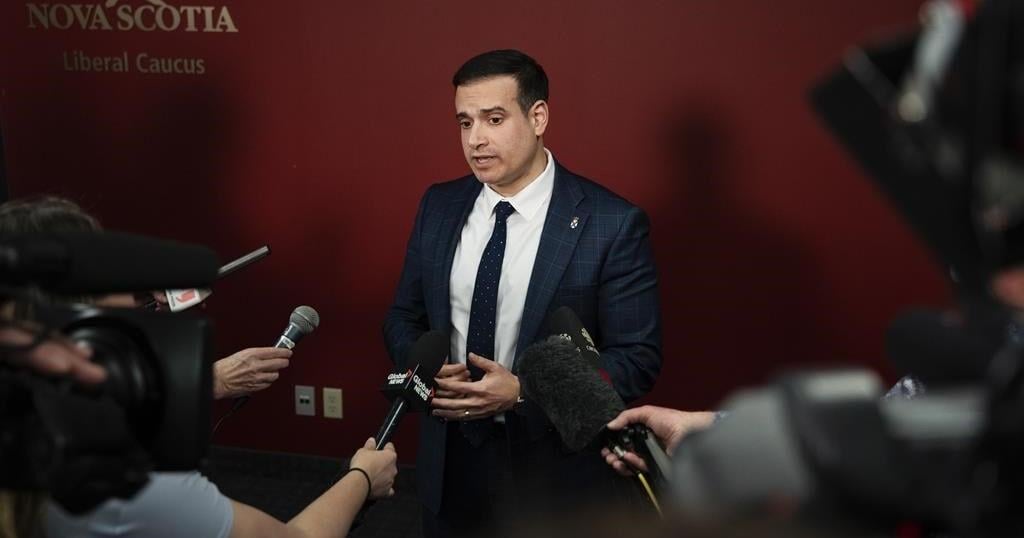HALIFAX – Nova Scotia Premier Tim Houston fired the opening salvos of a snap election he called Sunday, saying he needs a strong mandate in order to help the province “stand up” to the federal government.
Voters in the Maritime province will go to the polls on Nov. 26, several months ahead of the province’s fixed election date of July 15 , 2025.
“Nova Scotia needs a government with a renewed fresh mandate to stand up for our province,” Houston told supporters during a rally at a pub in the Halifax suburb of Bedford. “Otherwise our province risks becoming a political football in a federal election that could be held simultaneously with the current scheduled fixed election date. That is not in Nova Scotia’s best interest.”
In the months prior to the election call, Houston had increasingly complained about the burden he says Ottawa’s carbon pricing model has placed on Nova Scotians at the gas pumps. Also high on the premier’s list of grievances is Ottawa’s refusal to pay the entire cost of the expensive work needed to protect the Chignecto Isthmus, the low-lying land link between New Brunswick and Nova Scotia that is increasingly prone to severe flooding.
Houston ratcheted up his criticism of the isthmus disagreement on Sunday.
“The Trudeau government refuses to take responsibility, in fact they are trying to rip us off … and they are willing to rip us off even if it means cutting us off from the rest of Canada,” he said.
Houston also took a swipe at the provincial Liberals, attempting to tie them to federal policies – a tactic he previously employed on several occasions during a short 10-day sitting of the legislature in September.
Meanwhile, the premier said his Progressive Conservative government was also asking for a new mandate because it is planning significant spending to deal with the province’s housing shortage and high cost of living.
“It’s only right to go back to the people for support and direction on the course forward,” he said.
Earlier in the day, Houston paid a short visit to the province’s Lt.-Gov. Arthur LeBlanc at his official residence in downtown Halifax in order to dissolve the legislature ahead of the 31-day campaign. He emerged and didn’t speak to assembled reporters, opting instead to quickly jump onto a big, bright blue campaign bus sporting his image on the side and the words “Make it Happen.”
Both of the province’s opposition leaders were critical of an early call they said broke the premier’s promise to adhere to a fixed election date.
“This is a needless election that’s going to cost Nova Scotians $13 million for no good reason at all,” Liberal Leader Zach Churchill said in an interview. “Tim Houston is doing this out of what’s perceived to be his own self interest.”
Churchill, who is entering his first election as leader of his party, said the government’s record will be a target on the hustings.
“He can’t stand on his own record,” he said of Houston. “More people don’t have a family doctor than ever before, life’s more expensive than ever before and more people can’t afford rent or to buy a home.”
NDP Leader Claudia Chender, who is also leading her party into an election for the first time, said in an interview that the government is vulnerable on a number of fronts, but especially when it comes to its pledge to “fix” the province’s health system.
“They have not been able to get people off that family practice wait list … it (the number) is double now what it was when Tim Houston came into office. Emergency rooms are as crowded as ever and many are closed more than they are open.”
The Tories are looking for a second consecutive mandate from Nova Scotia voters after sweeping the Liberals from power in August 2021 — a victory that was the result of a nearly single-minded focus on the need to deal with the province’s ailing health-care system.
The province’s Need A Family Practice Registry — seen as an important indicator of how well the health system is doing — was updated earlier this month for the first time since June when it hit a record 160,234 people without a doctor.
New figures indicate a marked improvement, with 145,114 people on the registry.
The numbers are still far higher than the summer of 2022, when there were slightly more than 100,000 people on the list. However, those on the wait-list for a family doctor do have full access to virtual care through the Maple platform after the government made a concerted effort to expand the option.
The Tories have defended their health record by pointing to community clinics and collaborative practices that have given residents increased access to care. As well, they have said that since 2021 they have bolstered emergency medical care by adding more health workers and resources into the system.
As of September, Nova Scotia has added about 300 doctors to the provincial health system since September 2021, according to the provincial health department.
At dissolution, the Progressive Conservatives held 34 seats in the 55-seat legislature. The Liberals held 14 seats, the NDP had six and there was one Independent.
This report by The Canadian Press was first published Oct. 27, 2024.
